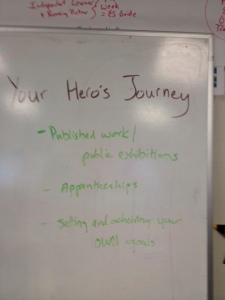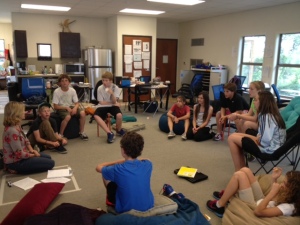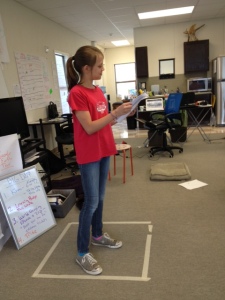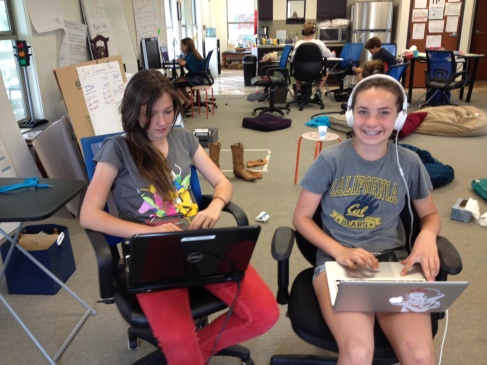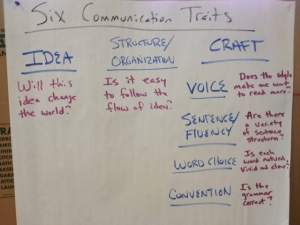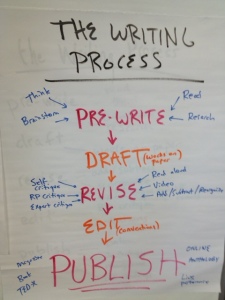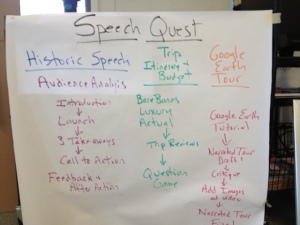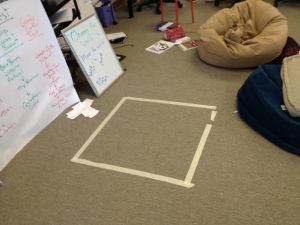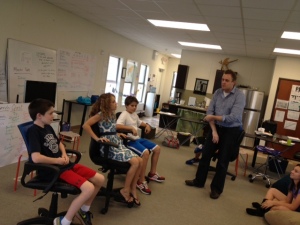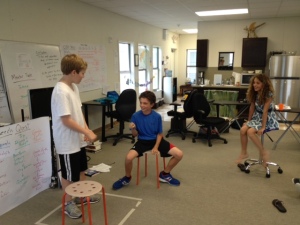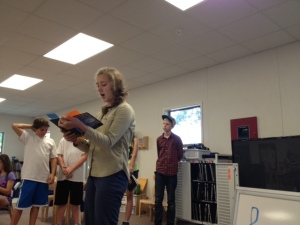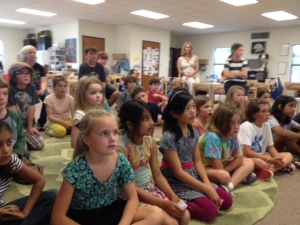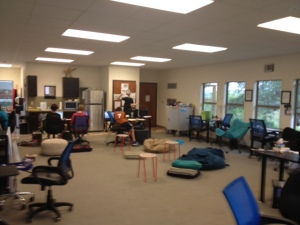The Acton Academy curriculum would be so much simpler if the adults would just take charge of the teaching: lessons could be planned and delivered; classrooms would be free from disruptions and students could move forward in a lockstep curriculum.
The Acton Academy studio would be much neater if adults were in control: food could be prohibited; janitors could be hired and free time would be quieter and less raucous.
Parents would be much easier to manage in a more well ordered school too, especially if we didn’t consider having families of lifelong learners so important or would stop conducting those pesky weekly surveys of customer satisfaction.
Trial and error learning, self government and spontaneous order are just so messy. Especially when we are trying to craft a model for 21st century learning.
Those of us who guide in the school make mistakes. Early on, we made it clear that standardized testing wasn’t important – building a curriculum and school around standardized testing stifled curiosity and ingenuity; being “smart” was better than the alternative, but not nearly as important as having character and perseverance.
Yet we wanted to make sure students weren’t too far behind in the basics, so we tested how Eagles were doing in reading, writing and math. The results were astounding, so suddenly we began touting the rapid advances in learning that we could easily measure, forgetting the far more important “messy” lessons that were being earned and learned.
At one point, a third or so of our older elementary students had maxed out the SAT10 test, so it was inevitable that the rapid advancement in grade levels would slow, as many Eagles approached the limits of the tests, some focused more on one subject than another and others went through natural changes in development and cognitive growth.
Yet now we had to explain to a few anxious parents that even the brightest and most motivated Eagles can’t advance multiple grade levels every year, not if you want the far more important and messy lessons of self government, learning how to learn and apprenticeships to take hold.
Yes, real learning is messy. So are genuine learning communities. So are parents and lifelong learners like us trying to find our way.
Yet we wouldn’t have it any other way.
